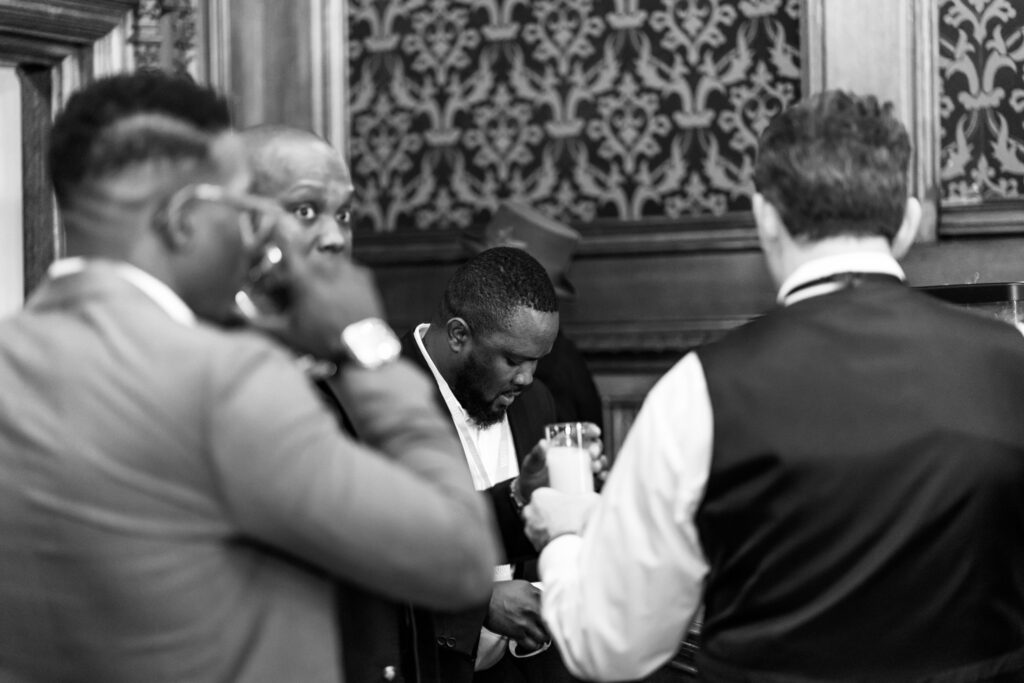
“Relationship” is a common word that we all know. It is so common in our society that its true definition has likely eroded over time, like many other words. It is one word for which many English dictionaries do not have a singular agreeable definition. Do not get me wrong; the context is often the same, but over time, important elements of its “TRUE” meaning have been left out.
Before going further, let us define “Relationship” using the Oxford Advanced Learner’s Dictionary:
“Relationship is how two people, groups or countries behave towards each other or deal with each other”.
By this definition, have you noticed how skewed your practice of it has been? Not yet? OK, bear with me.
Many people who are close to me will consider me the relationship guy. Over time, I have come to understand that irrespective of my competency, my relations with people will be single-handedly the most influential factor, outside my God, that determines my next stage in life.
Relationships do not require a long-term engagement; they are simply the way we deal with or behave towards each other. Does this raise your eyebrows a bit? No? Ok. Most times we believe that our relationships factor in only the people we know, people we have come to bring into our “circle” (friends, professional networks, etc.). We rarely think about our everyday behaviours or dealings with others as relationships – so we VIOLATE PEOPLE more often than we VALUE THEM, and the assumption we have or excuse we give ourselves is that “WE DO NOT HAVE A RELATIONSHIP WITH THEM”.
In today’s world, especially in this tech age and in the line of business we do, every interaction matters. A single bad relationship with someone whom we think we have no “RELATIONSHIP WITH” can break us in almost unthinkable ways.
Think about this: you are a startup serving a particular customer who makes up 1 of the 100s of other customers you have. In your mind, they are just “CUSTOMERS”, and there is NO RELATIONSHIP WITH THEM other than the buying of your products or payment for your services. But what happens when that “Customer” feels disrespected and violated by your behaviour towards them? Does it then get personal enough?
Over time, I have come to place value on people and, in return, hope they do the same. This specifically defines my approach to people and how I manage my actions towards them. Humans are complex, and to succeed, you MUST truly build up yourself on how you relate with people. A “Relationship”, as seen by the Oxford Dictionary definition, does not need to be important only when “IT IS PERSONAL FOR YOU”. Because the truth is, you will never be able to tell how personal it is for the person, group or company on the receiving end. And if you are unable to predict that, it means you have to treat every Relationship as “PERSONAL”. Do not get me wrong; I do not know what you define as personal, but in my dictionary, it does not mean sharing my family secrets with everyone I meet. Rather, it means behaving in a way that I would like to be behaved towards; I know it sounds cliché, but it’s true.
So, if relationships are this important and universal, then how do we build good relationships?
Practical Steps to Building Good Relationships:
1. Engage Actively Online and In-Person
Today, relationships are cultivated both online and offline. Don’t underestimate the power of a thoughtful comment on LinkedIn or a well-timed tweet. Similarly, make the most of physical networking events. Approach each interaction, whether virtual or face-to-face, with genuine interest and intent.
For example, if you’re attending a tech conference, don’t just collect business cards. Have meaningful conversations, ask insightful questions, and follow up with personalised messages afterwards. Online, engage regularly with content from industry leaders, offering your insights and experiences. And most importantly just because you are in a rare situation that brings you together with people of influence (online or physical) means you should violate presence.
2. Cultivate Long-Term Relationships
Remember, “When you meet people, do not treat them anyhow because you think you have no use for them now because the greatest value from any relationship is not always instantaneous but rather long-term.” This wisdom is crucial in the tech industry, where today’s intern could be tomorrow’s startup founder or investor.
Practically, this means maintaining connections even when there’s no immediate benefit. Keep in touch with former colleagues, classmates, or conference acquaintances. A simple check-in email every few months or a congratulatory message on their achievements can keep the relationship alive.
3. Offer Value Consistently
Don’t approach relationships with a “what’s in it for me” mentality. Instead, always look for ways to add value. This could be sharing relevant industry insights, making introductions, or offering your expertise.
For instance, if you come across an article that could benefit someone in your network, share it with them along with your thoughts. Or if you know two people who could benefit from knowing each other, facilitate an introduction.
4. Be Authentic and Vulnerable
In the startup world, presenting a polished image is always tempting. However, authentic relationships are built on genuine interactions. Don’t be afraid to share your challenges along with your successes.
When speaking at events or in one-on-one interactions, be open about your obstacles. This vulnerability can create stronger, more meaningful connections.
5. Follow Through on Commitments
Trust is the foundation of any strong relationship. If you say you’ll do something, make sure you do it. This reliability builds your reputation and strengthens your professional relationships.
For example, if you promise to introduce someone to a potential client or investor, ensure you do it within the timeframe you specified. This consistency in following through will make people more likely to trust and rely on you in the future.
6. Practice Active Listening
In every interaction, focus on truly understanding the other person rather than just waiting for your turn to speak. Ask thoughtful questions and show genuine interest in their responses.
During meetings or networking events, take notes and refer back to previous conversations. This demonstrates that you value what others say and are invested in the relationship.
7. Show Appreciation
Regularly express gratitude for the people in your network. A simple thank you can go a long way in nurturing relationships.
Consider sending handwritten notes or personalised emails to thank people for their time, advice, or help. This personal touch can make a lasting impression and strengthen your connections.
Building and maintaining relationships is an ongoing process that requires consistent effort and genuine care. By approaching every interaction with respect, authenticity, and a long-term perspective, you’ll build a network that can propel your startup or career to new heights. Remember, the relationships you cultivate today could be the key to unlocking opportunities you haven’t even imagined yet. So treat every interaction as an opportunity to build a meaningful relationship – because, in the end, your network can be your literal survive when it matters.

